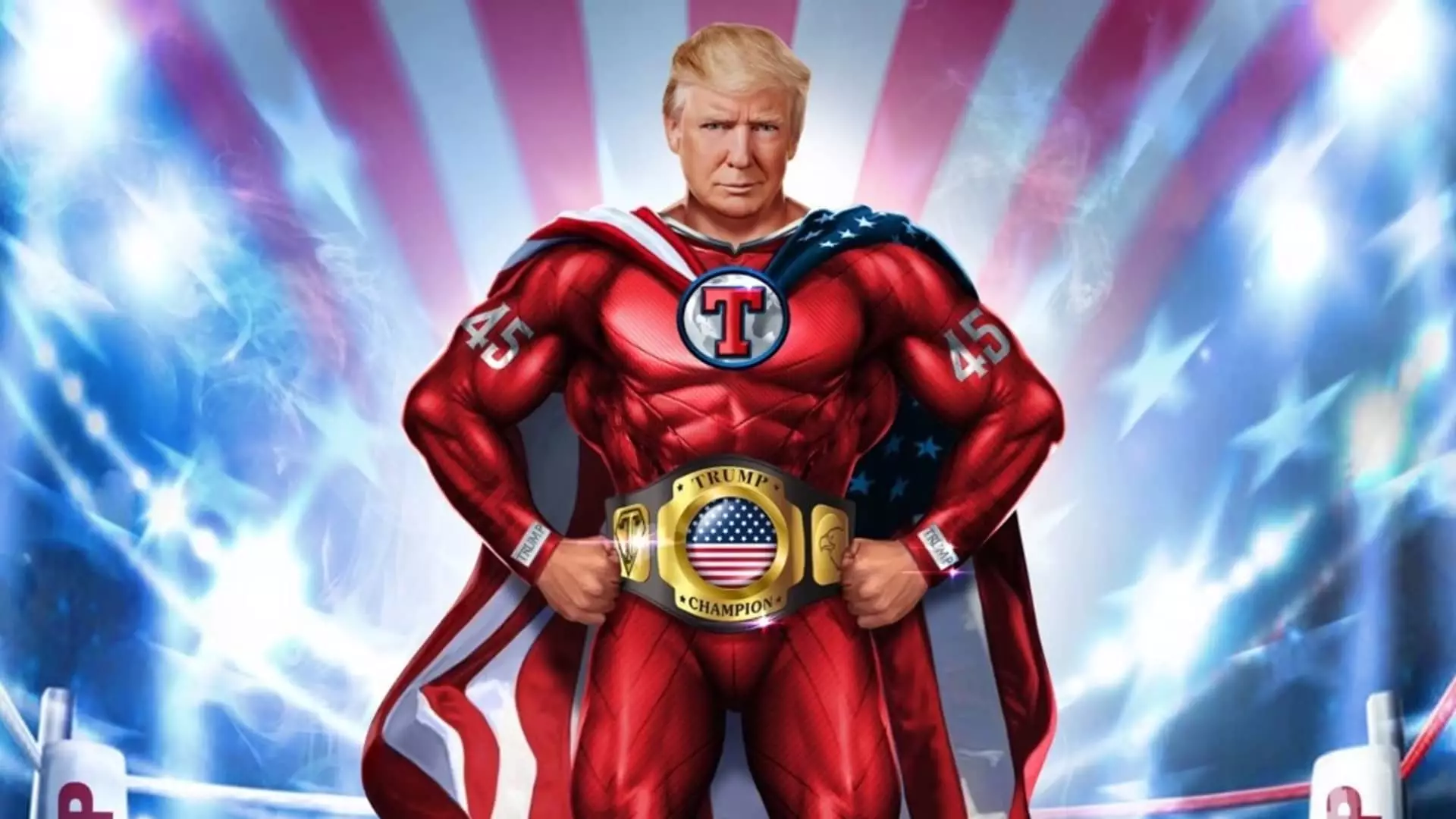The dynamic landscape of cryptocurrency continues to capture the attention of investors and the public alike, especially as high-profile figures enter the arena with innovative offerings. Donald Trump’s recent venture, World Liberty Financial (WLF), exemplifies this trend as he unveils a new token, WLFI, just weeks ahead of the presidential election. This article delves into the implications of Trump’s foray into crypto, the structure of the WLF initiative, and the skepticism surrounding it.
With the presidential election on the horizon, Trump’s ventures often seem tightly interwoven with his political aspirations. The launch of WLFI on platforms like X (formerly Twitter) is not merely a business move but a strategic play to broaden his influence and possibly bolster his image among tech-savvy voters. By marketing WLFI as an innovative financial opportunity, Trump attempts to position himself at the forefront of a rapidly evolving financial landscape, appealing to individuals interested in revolutionary economic solutions.
The pitch to young and tech-forward demographics is clear: invest in shaping the future of finance. However, the lack of a substantial foundational blueprint raises questions. Prospective investors may be intrigued by the promise of governance rights and participation in the democratization of finance, yet many might find themselves in unfamiliar territory, unsure of the path ahead.
Although Trump has positioned WLF as a “crypto bank,” the details of the operation remain under wraps. Without a formal white paper or a detailed business plan, interested investors are left navigating a sea of ambiguity. Early revelations indicate that WLF aims to raise $300 million, valuing the venture at $1.5 billion—a figure that seems ambitious, especially given the company’s nascent status and the broader volatility in the crypto market.
Furthermore, the proposal suggests a significant portion of WLFI tokens will be allocated to its founders, which may include members of the Trump family. The specifics surrounding token distribution underscore the financial incentives for those at the helm. With the founders sharing an unclear relationship with the public ownership structure, transparency issues brush against the ethical considerations of investor trust.
WLF is currently promoting a Regulation D token offering, which allows for capital raising without registering securities with the SEC. This approach creates a framework that primarily limits participation to accredited investors, defined in part as individuals with a net worth exceeding $1 million. Such stipulations may inadvertently alienate small investors seeking entry into this new financial domain. Moreover, it raises questions about equal access, fairness, and the implications of financial disparity in the burgeoning crypto economy.
With Trump holding a controlling stake in the parent company, DJT, the wider financial ecosystem should also monitor his role in WLF. Various elements intertwine the interests of parties involved, particularly in terms of profit-sharing and operational responsibilities. The imminent risk lies in whether investors can differentiate between a sound financial opportunity and a mere extension of Trump’s brand and public persona.
As WLF seeks to make inroads with established decentralized finance (DeFi) platforms like Aave, skepticism emerges from the crypto community. Issues surrounding the integrity of the Trump family and allegations linked to past businesses have raised red flags. Comments from within the Aave community reflect this apprehension, highlighting fears of reputational risk as well as ethical implications surrounding the partnership. Such concerns reiterate the importance of credibility in currently unregulated sectors like cryptocurrency.
Additionally, the potential consequences of a failed investment or a disruption in the WLF project mirror alarm bells that previously rang for other initiatives associated with the founders, including a hacking incident that caused significant financial loss. If entrenched in dubious backgrounds, the credibility of WLF as a serious financial entity comes into question, potentially undermining investor confidence before the venture even launches.
As WLF prepares for its initial token sale, investors face a myriad of challenges and uncertainties. The intersection of politics, ideas of financial empowerment, and the evolving world of cryptocurrency suggests that a leap of faith may be required. However, the lack of transparency and clarity regarding operations, combined with concerns voiced by the crypto community, calls for a cautious approach. Enthusiasts and skeptics alike must tread lightly as they ponder whether World Liberty Financial is a genuine road to innovative finance or simply another venture that rides the waves of market trends and political ambition. The ultimate success of WLFI will depend not only on the execution of its ambitious goals but also on the confidence it inspires in those it seeks to attract.


Leave a Reply
You must be logged in to post a comment.